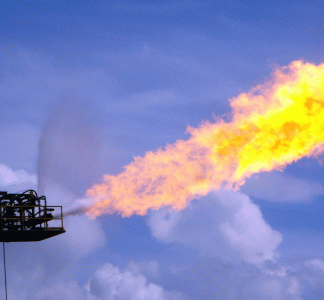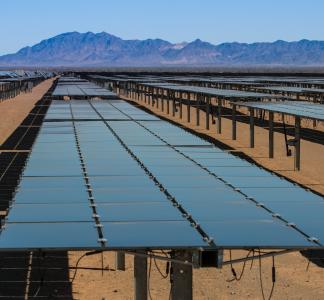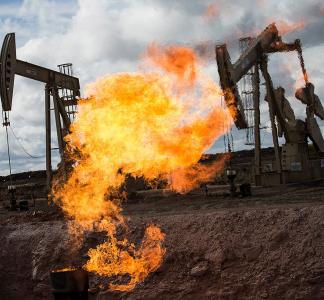We need to get methane under control ASAP
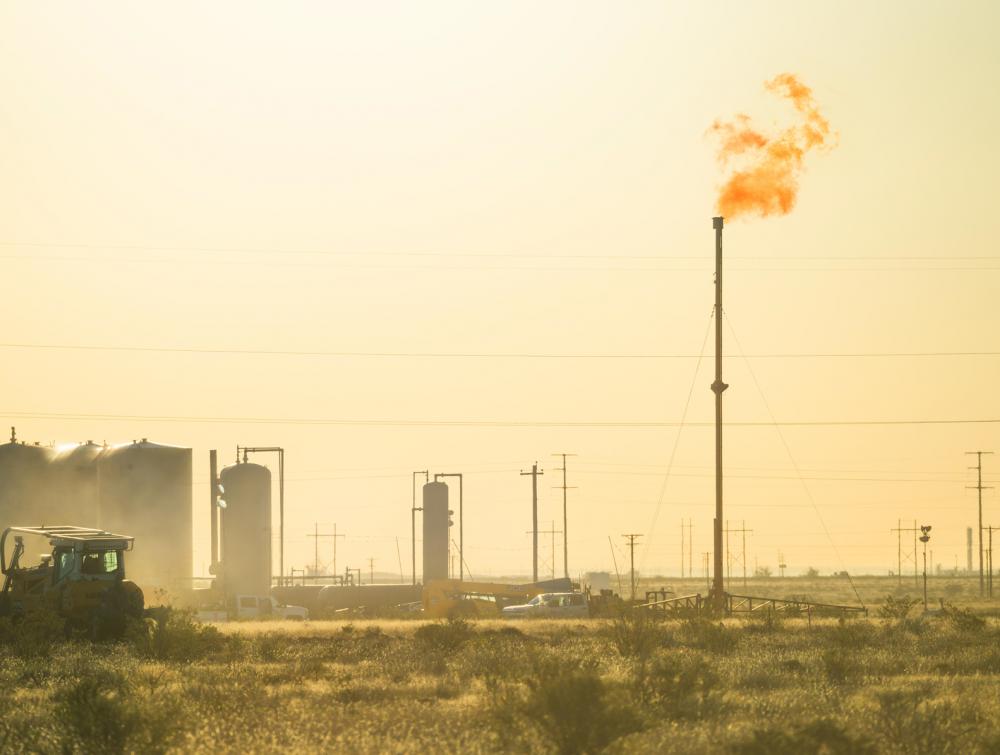
Gas flaring in Carlsbad, New Mexico.
Mason Cummings, The Wilderness Society
Methane is a major climate pollutant
In a competition of climate change’s worst villains, methane just might take the top prize.
Formed deep beneath the earth's surface, methane is the primary ingredient of natural gas, an increasingly popular source of energy in the U.S. Every day, methane is released into the air through venting, flaring and accidental leaks.
And it comes at a very high cost: Methane fuels climate change by trapping heat into our atmosphere more immediately and intensely than any other greenhouse gas.
Methane is a more potent driver of climate change than carbon dioxide
To add insult to injury, a lot of those leaks are happening in our backyards. About 13 percent of natural gas production in the U.S. takes place on public lands. Between 2009 and 2015, oil and gas operators managing these projects leaked, vented or otherwise wasted 462 billion cubic feet (BcF) of natural gas.
Not only is that a waste of energy – enough to power 6.2 million households for a full year – but also an unnecessary release of dangerous methane into the air.
Instead of ramping up the rules to prevent venting, flaring and accidental leaks of methane, the Trump administration is going in the opposite direction. Back in September 2018, the federal government rolled back a Bureau of Land Management (BLM) methane regulation for public lands. Recently, it also announced plans to reverse the Environmental Protection Agency’s (EPA) standards that require oil and gas companies to keep unnecessary methane releases under control, from processing to storage.
With both of those setbacks, there are currently no strong federal rules governing methane emissions.
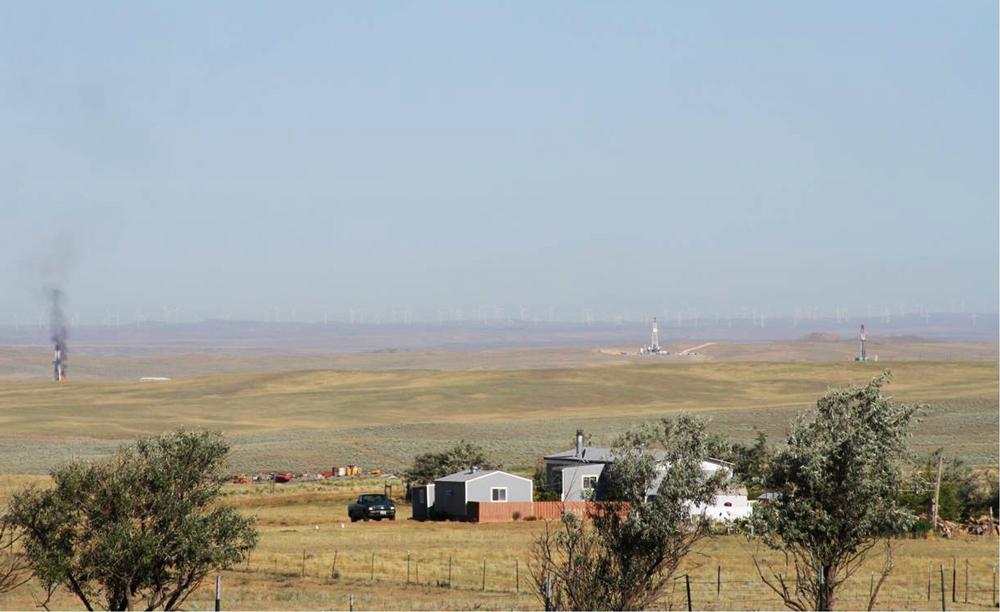
Pollution from natural gas infrastructure threatens those living nearby in Douglas, Wyoming.
Photo: Kris Mogen, WORC
Why we need to cut methane leaks and pollution now:
1. They ramp up climate change
Believe it or not, when methane leaks into the Earth’s atmosphere, the gas is about 87 times more powerful than carbon dioxide in its capacity to trap heat. It’s the second most common greenhouse gas emitted in the U.S. after carbon dioxide. As the world races against time to avoid the worst effects of climate change, it is vital we figure out a way to rein methane in.
A big part of the problem happens on public lands. Natural gas with methane leaked on our shared lands releases the same amount of emissions as 3.3 million cars in a year. By getting “fugitive” natural gas under control, we could take a big step toward addressing climate change.
2. They make the air less safe to breathe
Take a deep breath and consider this: More methane is associated with more air pollution. When methane in the lower atmosphere oxidizes, it forms ozone—the main ingredient in smog, which can cause a host of health problems.
Dangerous toxins like benzene, a known carcinogen, are released alongside methane at oil and gas sites, too. Other pollutants associated with gas production can trigger asthma attacks and worsen respiratory diseases such as emphysema.
A recent report from the American Lung Association reinforced how important it is to address smog and air pollution. More than 4 in 10 people now live in counties that received failing grades when it comes to clean air, and ozone levels are getting worse across much of the U.S.
3. They waste taxpayer money
All that methane waste also means a lot of taxpayer money going down the drain – or to be more precise, up in the air. Between 2009 and 2015, the methane leaked, vented or otherwise wasted by oil and gas operators robbed taxpayers of about $1.7 billion in royalties that companies are supposed to pay for their use of shared resources.
A golden opportunity
Trump wants to weaken and roll back common-sense rules that protect our health and climate, including standards on methane pollution. But it’s not too late to make your voice heard.
